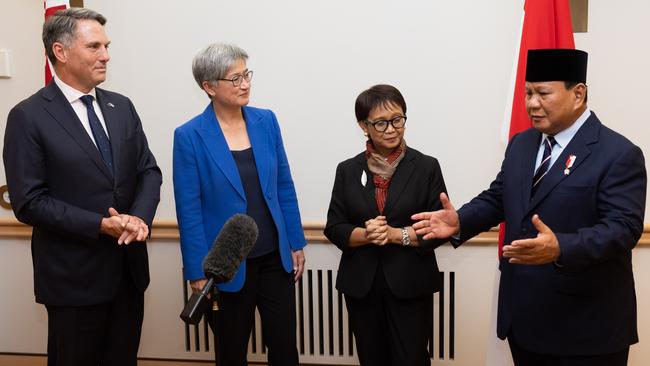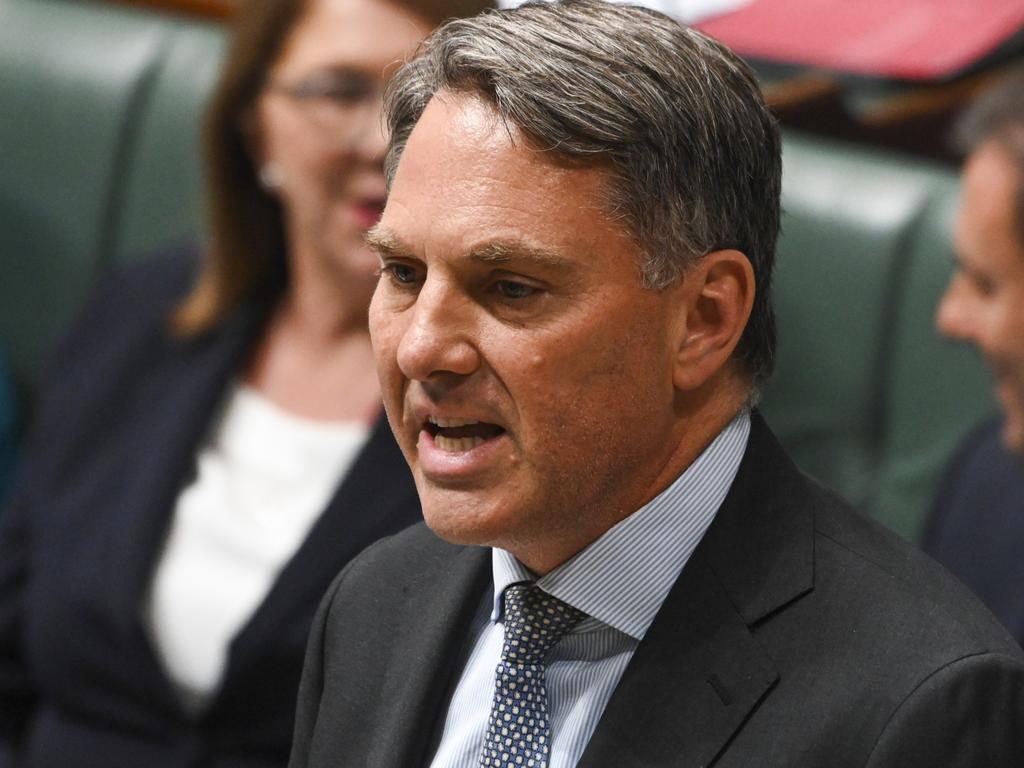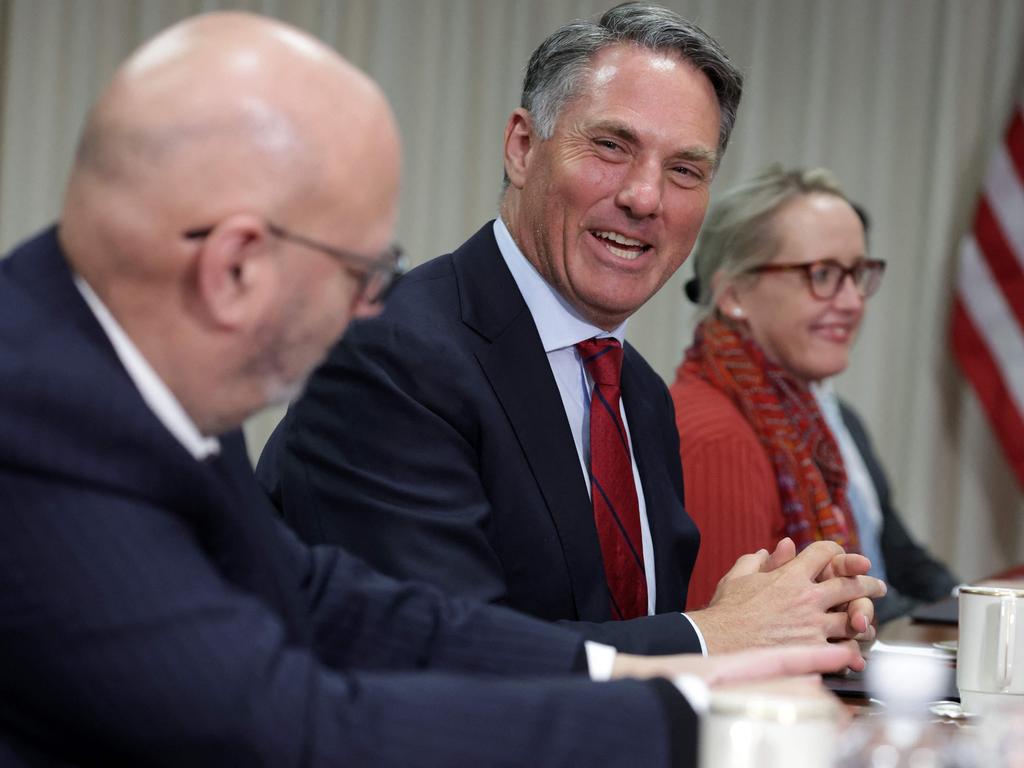Australia-Indonesia pact likely to raise Beijing concerns
Australia and Indonesia will negotiate a legally binding defence treaty to strengthen the interoperability of the nations’ military forces in a move likely to raise concerns in Beijing.

Australia and Indonesia will negotiate a legally binding defence treaty to strengthen the interoperability of the nations’ military forces in a move likely to raise concerns in Beijing.
Defence Minister Richard Marles and his Indonesian counterpart, Prabowo Subianto, said the agreement would enable reciprocal access of each nation’s forces to the other’s training ranges, streamlining joint training between the ADF and Indonesia’s 400,000-personnel military.
The ministers said after a meeting in Canberra on Friday that the planned pact, which they vowed to expedite, would elevate the existing defence co-operation agreement to one “binding under international law”. The move comes despite Indonesian concerns over Australia’s acquisition of nuclear submarines, suggesting the countries’ defence ties will withstand differences over the planned AUKUS boats.
The proposed treaty comes nearly 30 years after prime minister Paul Keating and Indonesian president Suharto forged a bilateral security agreement – Indonesia’s first – that was dissolved by Jakarta four years later over Australia’s intervention in East Timor.
In a statement issued after their bilateral meeting, the ministers said the nations’ defence relationship was underpinned by mutual trust, and the planned defence agreement sent an important message about their shared commitment to regional security.
“We intend for the new agreement to bolster our strong defence co-operation by supporting increased dialogue, strengthening interoperability and enhancing practical arrangements,” they said. “Negotiations will include consideration of issues such as reciprocal access to training ranges and streamlined entry and exit processes for joint activities.”
Former Australian ambassador to Indonesia John McCarthy said the announcement would raise eyebrows in Beijing.
“Of course, the Chinese will notice,” Mr McCarthy said. But he said both Australia and Indonesia would be at pains to reassure Beijing the treaty was not aimed at China. “I think it shows we have moved the security relationship with Indonesia up another notch. And I think that‘s important.”
He said the ministers’ statement was important, given Indonesian concerns about AUKUS, and suggested Indonesia was keen to “put the defence relationship back to the status that it had in the ’90s, and improve it somewhat”.


Former Office of National Assessments director Richard Maude said the announcement was a positive sign about the strength of the bilateral defence relationship, which stood in contrast to Indonesia’s concerns that AUKUS will undermine the Nuclear Non-Proliferation Treaty.
Mr Maude said Indonesia’s military was far less worried about AUKUS than the country’s Foreign Ministry, “and I think that privately and quietly they recognise why Australia feels it needs to go down this path”.
He said China should not be concerned about the proposed treaty but “might feel it is falling further behind in its attempts to establish its own defence relationship with Indonesia”.
“Indonesia is probably one of the less effective areas of Chinese diplomatic engagement, even though they work very hard at it,” he said. “Indonesia, for example, still sustains a very important and significant defence relationship with the United States.”
Australian National University international law expert Don Rothwell said the proposed pact would represent a “significant upgrade” in the Australia-Indonesia defence relationship, and it appeared similar to Australia’s 2022 “reciprocal access agreement” with Japan.
“There is a big difference between inviting another country to come and engage in defence training with many other nations as opposed to a bilateral agreement, and one that especially envisages the exchange of military personnel as part of a reciprocal access agreement,” Professor Rothwell said.







To join the conversation, please log in. Don't have an account? Register
Join the conversation, you are commenting as Logout